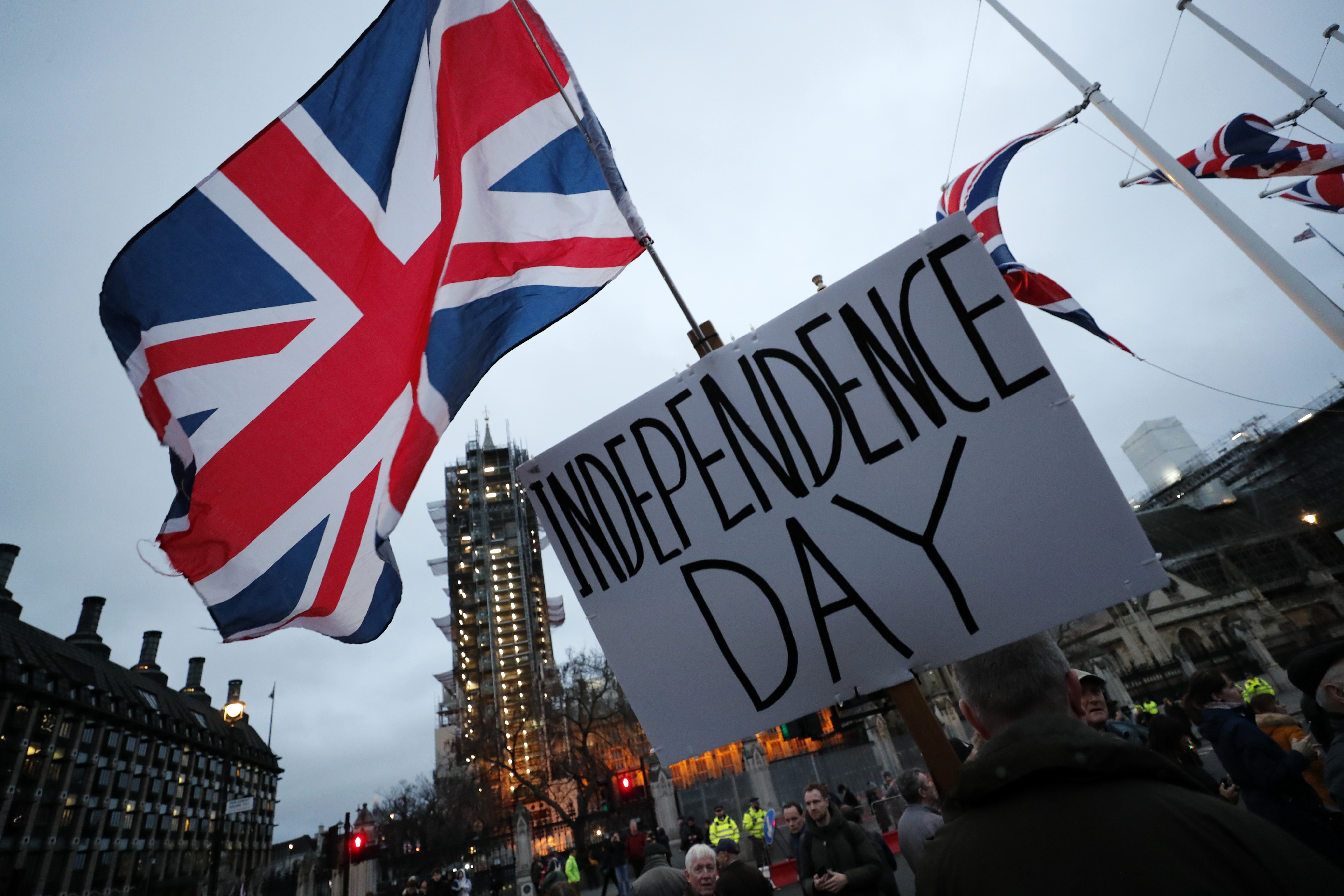Britain formally exits the EU on Friday night, casting off from the Continent after nearly half a century and ending a debate that had convulsed the country for more than three years. Yet for all the gravity of the moment, there is a palpable sense of anticlimax.
Now that Britain has finally reached this point of no return — one that millions of Britons had long either dreaded or dreamed of, marched against or eagerly prepared for — the prevailing emotion is neither sadness nor excitement. Rather, it is a characteristically British reflex: Get on with it.
In time, the British are likely to discover that getting on with it isn’t so easy. For the next 11 months, Britain will continue to abide by the EU’s rules and regulations, while it decides what sort of Brexit it wants for itself. That will be hammered out in talks with the bloc’s leaders in Brussels over trade relations — negotiations that could prove as divisive and traumatic as the political fight over the withdrawal.
But that, for now, lies in the future. For most people, nothing will be all that different when the sun rises on Saturday morning.
To a great extent, that reflects the endless, enervating nature of the Brexit debate. Since the day Britons narrowly voted to leave the EU in June 2016, the issue has divided families, cast a shadow over businesses, and paralysed the government.
Parliament, that venerable symbol of British democracy, became a gladiatorial arena, at once riveting and horrifying to those who tuned in to the daily combat.
When Prime Minister Boris Johnson promised during the recent election to “get Brexit done”, British voters, exhausted and fed up, gave him the largest Conservative Party majority since Margaret Thatcher in 1987.
“Everyone — but everyone — including the most passionate Remainers like me, had a ‘get Brexit done’ corner in our souls,” said Timothy Garton Ash, a professor of European studies at Oxford University, referring to the choice between leaving the EU or remaining in it. “We’ve had three and a half years of this, so we were well into the fourth or fifth stage of grief.”
Mark Malloch Brown, another prominent Remainer and a former No. 2 official at the UN, said, “Even though it’s not the outcome I wanted, it returns government to its proper place.”
Brexit has already left a deep imprint on the country. Financial firms have moved some of their operations to other European cities, workers from other EU countries have begun leaving, and the fierce national debate over whether, and how, to leave has radically realigned the country’s politics.
Since Johnson’s victory, however, the British have given themselves a kind of holiday from history.










